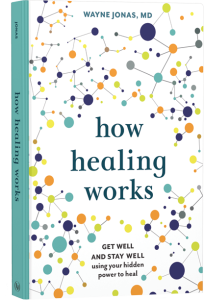You’re over 30—now what?
First: don’t freak out. Being over 30 can be great! You made it through the busy and challenging decade of your 20s, and you may have made some decisions about a job or career, relationship(s), whether to become a parent, and where to settle—at least for now.
Second: don’t freak out if you haven’t made those decisions yet. There is always time, or at least, no benefit to hurrying. The news stories about the grandmother who earns a college degree and the octogenarian who runs a marathon show us that it’s never too late to achieve a dream.
Let’s look at what might be in front of you wherever you are in this decade. We have some journaling tools that can help you figure things out. In addition, our post “You’re in Your 30s (or 40s) – Now What?” can help point you in the right direction for general physical and mental health as you go through this decade and beyond.
Here, we’ll follow a couple of people in their 30s and look at some possibilities that might work for you, too.
Work and career
Are you working? Do you need to find a job? Are you happy doing what you are doing, or do you have a nagging sense that you haven’t really found your niche?
Beth, 31, is there too. She holds a college degree but changed her major from pre-nursing after an adult care internship that made her decide hands-on care was not for her.
Now she works as a paralegal, but it’s not a job she’s excited about. Last year, she took a second job as a hostess at a hotel restaurant. The goal was to get rid of her college debt, but she’s found she actually prefers the hospitality industry to the legal field.
Your 30s can be a time to embrace the career you’ve chosen. If you chose a profession, you may be climbing the career ladder. If you work in an office, factory, or lab you’ve probably earned some respect and developed some skills.
Now is a great time to consider which direction you want to go. Will you stay with your company, go back to college, or be like Drew, who quit the manager track to become an entrepreneur?
Write down work goals and wishes
Write a response to the following questions. You might write a lot or a little, skip questions, or add another topic.
- What did you most love to do when you were about 9 years old? Write down your favorite activity. Is it part of your work life, or could it be?
- If you could do any job or have any career you wanted, what would it be?
- If you like your current job, career, or industry, what is your secret pie-in-the-sky goal? For example, you’re a kindergarten teacher, but you think you would do a good job as a school principal. Or you’re a barista, but you’d like to own the coffee shop.
- If you aren’t really satisfied with your current job, industry, or career, what is keeping you there?
The answers may give you some insights about your next step. Traditional information comes from the books What Color is Your Parachute (just revised for 2022) and Finding Your Own North Star.
You can also take aptitude tests to figure out if you are in the right line of work or might be suited for something you’ve never really considered.
Kristin majored in piano performance in college. Today, she is a police detective. It turns out that her talent for attending to details can be applied in more than one way – and she still enjoys playing the piano.
Relationships, parenting, and fertility
“Are you still single?”
“When are you two getting married?”
“Are you planning to have kids?”
“Have you considered fertility treatments?”
You may well hear these are questions in your 30s from friends, relatives, and even apparently well-meaning strangers.
Yes, they’re personal. But they reflect both current social reality and, usually, the concern of the person who is asking.
In a relationship?
A recent study by the Pew Research Center found that about 4 in 10 American adults (not all of them in their 30s, we should add) are not married or living with a partner.
Being free and single may sound great. Everything the way you want it! Cereal for dinner, no questions asked about how you spend your money. However, the study also examined effects on mind, body, spirit—and wallet, and the results are worth looking into.
If you’re single in your 30s, ask yourself if you want to be. You can actually use the work and career questions above to help clarify whether you want a relationship and what’s right for you.
Deciding about a partner
If you’re in a relationship now, the same type of reflection can help. Here are a few more questions.
- If I had 6 months to live, would I stay with my current partner?
- Is marriage important to me? To my family? To my partner? Do I see marriage in our future? Why or why not?
- What do I see as the goal of having a spouse or life partner (for example, to provide a stable home for future children, to have a lifelong companion, or something else)?
- If my current partner is not the one for me, what do I want to do about that?
- If I follow a faith, moral code, or philosophy, how does it affect my answers or choices?
Knowing your and your partner’s (or potential partner’s) “attachment style” can help you find the right type of person for you and improve your relationship with your current partner. You may want to read Attached by psychiatrist and neuroscientist Amir Levine, MD, and Rachel Heller. This book explains the different ways adults form attachments – are you anxious? Avoidant? Secure? and how to develop healthy relationships starting right where you are.
Parenting and fertility
If you’ve read this far, you’ve probably realized you can adapt the questions above to think about whether you want kids, when you want them, and what you’ll do if you don’t want or have them. You may also already be a parent. If you are, and you have time to sit and reflect, you’re doing something right.
If you’re not a parent but may want to be, you should know that biology presents us with an important reality in our 30s: age 35 is when fertility begins to decline for men.[i] For women, it’s more difficult to conceive and have a healthy pregnancy and child after age 35.[ii] You saw something different in Us magazine, you say? Celebrities can have kids at any age, so why can’t we?
It is certainly possible to have children in your latter 30s or even at older ages. However, before assuming you can take your time, look into the cost of fertility treatments and what’s involved. You may also want to consider adoption. Almost 118,000 children in the US were awaiting adoption in 2020.[iii]
If you are undergoing or considering infertility treatments, don’t forget to look outside the conventional medicine box for options to complement those treatments. While the overall evidence for complementary medicine is still inconclusive about the potential for helping infertility, sometimes changes as simple as managing stress in a new way, changing your nutrition, or other wellness approaches can increase the chances of a successful pregnancy and health baby.[iv]
Here are some choices people in their 30s have made about fertility and children.
- Denise and Shawn had their son when Denise was 41 after starting in vitro fertilization when she was 38. Their son Alec is priceless to them. The IVF cost $55,000, which they borrowed from family members and took from their retirement plan.
- Rhonda and TJ decided children were not in their plan. She had spent her teen years helping parent younger siblings, while he has a child with autism from a previous marriage.
- Cruz and Valeria married in their mid-30s. They have chosen to parent foster children from a local agency and have adopted one of their foster sons.
- Robin badly wanted a baby in her early 30s. She became pregnant with her partner Liam, hoping he would decide on marriage. After raising little Tia on her own for two years, Robin married Vlad and had two more children.
A note on men, women, and pregnancy
Here, we are talking about individuals based on whether they were born with XX (female) or XY (male) chromosomes. Regardless of how you express yourself, if you have a uterus and want to carry a child, talk with a knowledgeable physician about your options. Ask how any hormone treatments you received will affect you and your child in pregnancy and later life.
Big decisions, deep breath, go
We talk about whole-person health here at Dr. Wayne Jonas. Our goal is to help you explore and integrate your mind, body, and spirit to create maximum health and make the most of your precious energy and time.
What are your goals? A simple exercise may help you identify them. Close your eyes and see yourself in 10 years if all your dreams, wishes, and hopes came true. Enjoy the vision. Write or draw something that helps you remember it. You can also create a vision board, using social media or plain old poster board and magazine clippings, drawings, or even objects.
Then, count forward 10 months from now. What are you doing to make your vision a reality?
Finally, what can you do in the next 10 minutes toward your vision? Can you search “online certificate programs”? What about “become a union steward,” “start a pet sitting business,” “best online dating,” or “how foster parenting works”? The journey of 1,000 miles starts, as they say, with a single step. Bon voyage.
References
[i] Curley, Bob. Sperm quality declines significantly after age 50. Healthline. June 27, 2019. Available at https://www.healthline.com/health-news/sperm-fertility-declines-significantly-after-age-50. Accessed June 23, 2022.
[ii] American College of Obstetricians and Gynecologists. Having a baby after age 35: How aging affects fertility and pregnancy. FAQ 060. Last reviewed December 2021. Available at https://www.acog.org/womens-health/faqs/having-a-baby-after-age-35-how-aging-affects-fertility-and-pregnancy. Accessed May 4, 2022.
[iii] Statista.com. “Number of children waiting to be adopted in the United States from 2007 to 2020.” https://www.statista.com/statistics/255375/number-of-children-waiting-to-be-adopted-in-the-united-states/. Accessed July 6, 2022.
[iv] Miner, S.A., Robins, S., Zhu, Y.J. et al. Evidence for the use of complementary and alternative medicines during fertility treatment: a scoping review. BMC Complement Altern Med 18, 158 (2018). https://doi.org/10.1186/s12906-018-2224-7

Take Your Health Into Your Own Hands
Drawing on 40 years of research and patient care, Dr. Wayne Jonas explains how 80 percent of healing occurs organically and how to activate the healing process.

